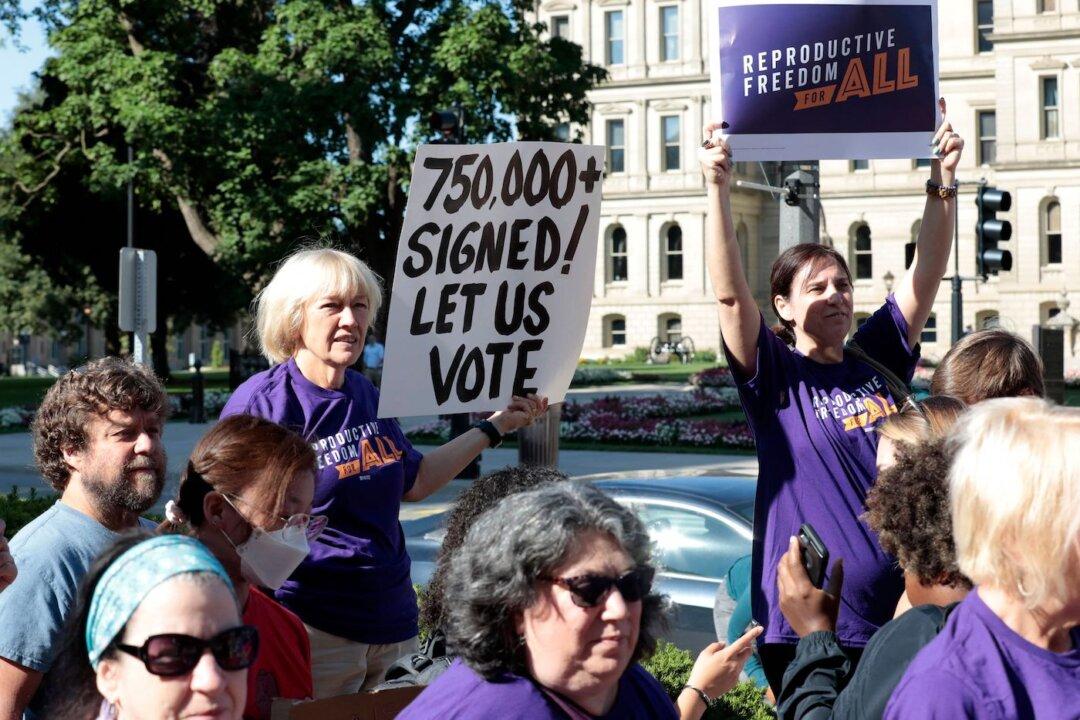The Michigan Supreme Court ruled on Sept. 8 that voters can decide in the November general election ballot whether abortion should be legal in the state.
The seven justices on the state’s high court voted 5–2 to have a proposed state constitutional amendment regarding abortion on the ballot on the November ballot. It will be up to the Michigan Board of State Canvassers to decide in a final vote on Sept. 9 on whether to place the measure before voters.




